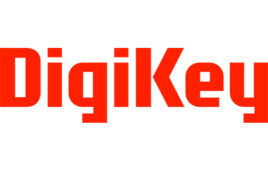Teschler on Topic
Leland Teschler • Executive Editor
[email protected]
On Twitter @ DW_LeeTeschler
I once worked at a company where the people in the HR department seemed to be fixated on justifying their jobs. One way their fixation manifested itself was in a complicated and time-consuming goal-setting exercise foisted upon everyone in the firm. As I recall, we had to come up with goals that fit into categories such as operational, communication, strategic, and so forth. What this process actually boiled down to was taking the work you knew you were about to do anyway and squeezing it into categories that satisfied HR.
In the minds of people in the HR department, the goals we came up with were supposed to be guiding  our work. In reality, I’m pretty sure neither we nor the people we reported to ever revisited them until goal-setting time rolled around again.
our work. In reality, I’m pretty sure neither we nor the people we reported to ever revisited them until goal-setting time rolled around again.
The process of evaluating our progress against our goals was equally silly. Supposedly, we were engaging in a thoughtful and earnest reflection about our accomplishments or lack of them. But as in most companies, situations at ours changed constantly, and it was common for some of the goals we set one week to be irrelevant the next. So the whole self-evaluation process became super political. We devoted a lot of time to weasel-wording self-evaluations that said we hit our goals but were phrased in ways that didn’t seem arrogant.
When we didn’t meet a goal, explaining the reason why became tricky. We had to delicately delineate why certain things hadn’t gone as planned without giving company higher-ups an excuse to ex-out a cost-of-living raise for us, or worse.
All in all, we spent the better part of two weeks annually contemplating our navels on numerous abstract goals that were meaningless shortly after we came up with them. More frustrating still, we had to pretend that we bought into the whole mess. The most pressing goal I had after completing one of these exercises was to have a stiff drink.
I once thought only the HR geniuses at my old company could come up with the kind of counter-productive goal-setting we experienced, but I was wrong. Marcus Buckingham, head of research at the ADP Research Institute, which focuses on workforce management, and Ashley Goodall, senior VP of leadership and team intelligence at Cisco, have examined heavy-handed corporate goal-setting programs like the one I endured. They point out that no research exists showing that goals set for people from above stimulate them to greater productivity. In fact, they say, the weight of the evidence suggests that goals cascading down through levels of management do the opposite; they limit performance and slow things to a crawl.
Buckingham and Goodall claim that the only criterion for a good goal is that the person pursuing it must set it themselves voluntarily. To make voluntary goals meaningful for a company, management must ensure employees understand the things that matter most to the organization.
As the two put it, “Instead of cascading goals (and) instructions for actions, we …. need to give (team members) a sense of which hill we’re trying to take….The best leaders realize that their people are wise, that they do not need to be coerced into alignment through yearly goal setting. …These leaders know that in a team infused with such meaning, each person will be smart enough and driven enough to set goals voluntarily that manifest that meaning.”
We might add that organizations having team members able to set goals voluntarily also have far less need for meddlesome HR departments. DW
You may also like:
Filed Under: Commentaries • insights • Technical thinking, Trends








